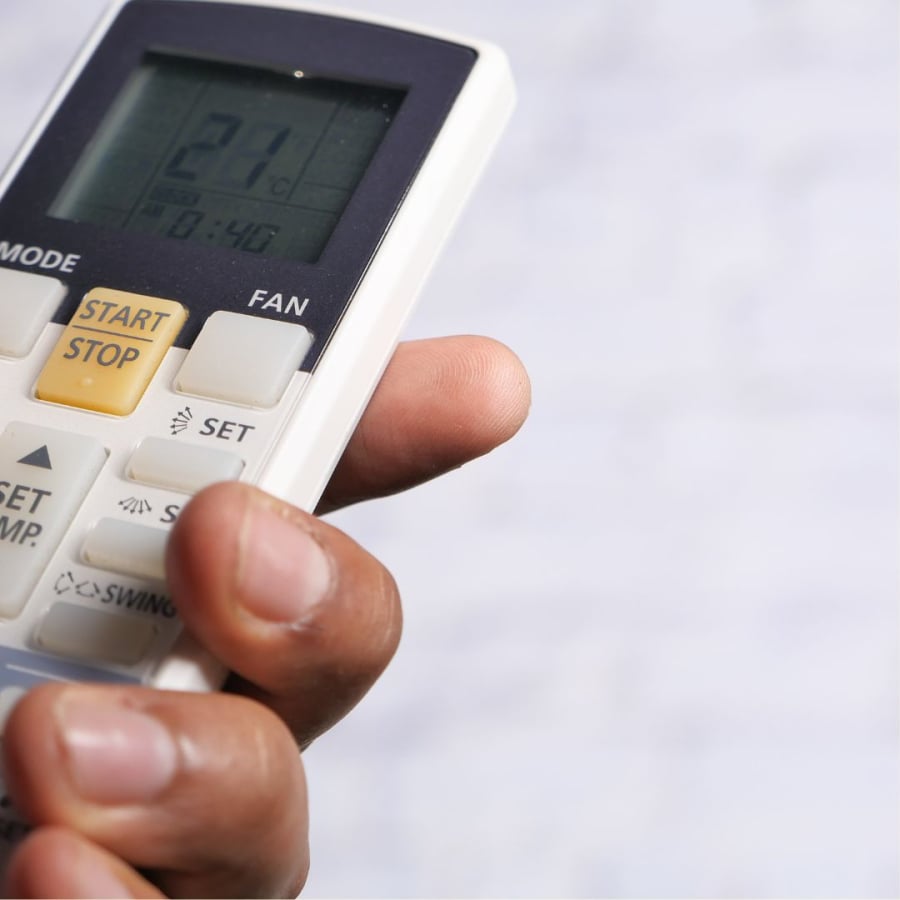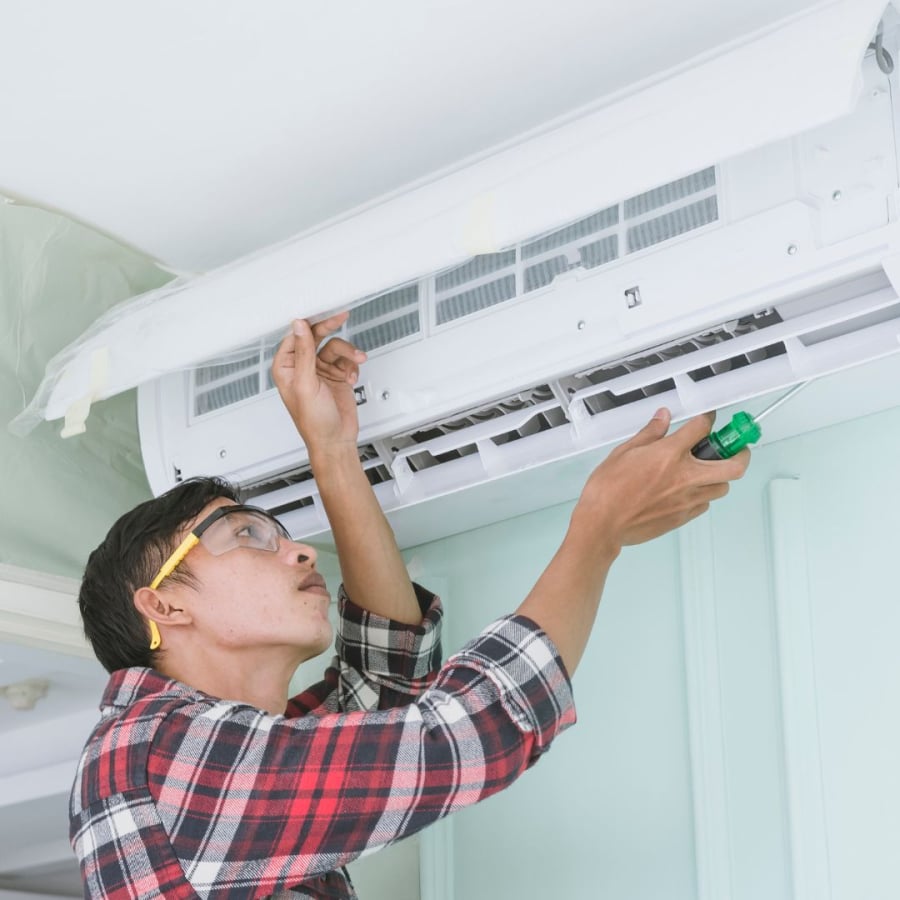Summer often stretches with temperatures soaring to 38–40°C, making air conditioners a necessity in many households. With predictions of a record-breaking hot year in 2025, ACs are set to become even more crucial appliances.
However, improper usage of air conditioning can lead to skyrocketing electricity bills, doubling or tripling summer electricity expenses for families. This article will share effective tips for saving electricity when using air conditioning in the summer, helping you maintain a cool space while keeping monthly costs in check.
1. Set a reasonable temperature – Stay cool and save more
Many people tend to set their ACs at extremely low temperatures (18–22°C) to quickly cool down their rooms. However, this forces the unit to operate at maximum capacity continuously, resulting in high electricity consumption and potential health issues.

Solution:
- Maintain a temperature between 26–28°C, and use a fan for even and pleasant cooling.
- According to experts, increasing the temperature by just 1°C can save approximately 7–10% of electricity consumption.
- Opt for the Auto or Dry mode during humid days that aren’t too hot for an efficient way to save electricity.
2. Choose an Inverter AC – A one-time investment for long-term savings
Inverter air conditioners, featuring variable-speed compressor technology, can adjust their power according to the room temperature, eliminating the need for constant on/off cycles like conventional units. This results in superior energy efficiency.
Notable benefits:
- Reduce electricity consumption by 30–60% compared to standard air conditioners.
- Operate quietly, increasing the lifespan of the compressor.
- Some premium models include user presence sensors, intelligently adjusting airflow and power.
3. Minimize door openings while the AC is running
Frequent door openings allow cold air to escape and hot air to enter, forcing the AC to work harder to maintain the set temperature.
Tips:
- Keep doors closed when the AC is on, especially entry doors and windows. Occasionally open the door for fresh air, beneficial for health.
- Consider installing thermal curtains, plastic windbreaks, or door sweeps to prevent cold air from escaping.
Ensure the room size matches the AC capacity. A room that is too large or too small will impact cooling efficiency and electricity consumption.

4. Maintain your AC for efficient performance
Over time, dust and dirt accumulate on the filters and evaporator coils, hindering the AC’s performance and increasing electricity usage while diminishing cooling capacity.
Solution:
- Clean the filters every 2–4 weeks, depending on usage and environment (more frequently if near construction sites or busy roads).
- Inspect and service the entire AC system every six months to ensure optimal performance, energy efficiency, and prolonged equipment life.
5. Utilize timer and sleep mode features
Leaving the AC running all night is a common habit, but it wastes electricity and may negatively impact your health.
Smart usage:
- Use Sleep mode, which automatically adjusts the temperature throughout the night, saving electricity and benefiting your health.
- Set timers to turn the AC on/off at night or before leaving home to avoid unnecessary electricity usage.
- If Sleep mode is unavailable, set a timer to turn off the AC after 2–3 hours once you’ve entered deep sleep.
6. Combine AC with electric fans
Using a fan with your AC helps distribute cool air faster and more evenly, enhancing the cooling effect.
Energy-saving benefits:
- Reduces the time needed for the AC to reach the desired temperature.
- Allows increasing the AC temperature by 1–2°C while maintaining a comfortable coolness.
- Ceiling or standing fans are both suitable, as long as the airflow isn’t directed at sleepers.
7. Properly turn off the AC – Avoid directly unplugging
After turning off the AC, some people immediately unplug it to save electricity. However, this can harm the control board.
- Wait for 2–3 minutes after turning it off with the remote before unplugging, if necessary.
- If using a wall switch, turn off the power using the switch instead of unplugging manually.
Conserving electricity when using air conditioning in the summer is neither difficult nor requires drastic changes. By using your AC wisely, maintaining it regularly, and incorporating smart supporting devices, you can enjoy a cool environment while managing your monthly expenses effectively. Don’t let electricity bills give you a “heat stroke” during the scorching summer!
































